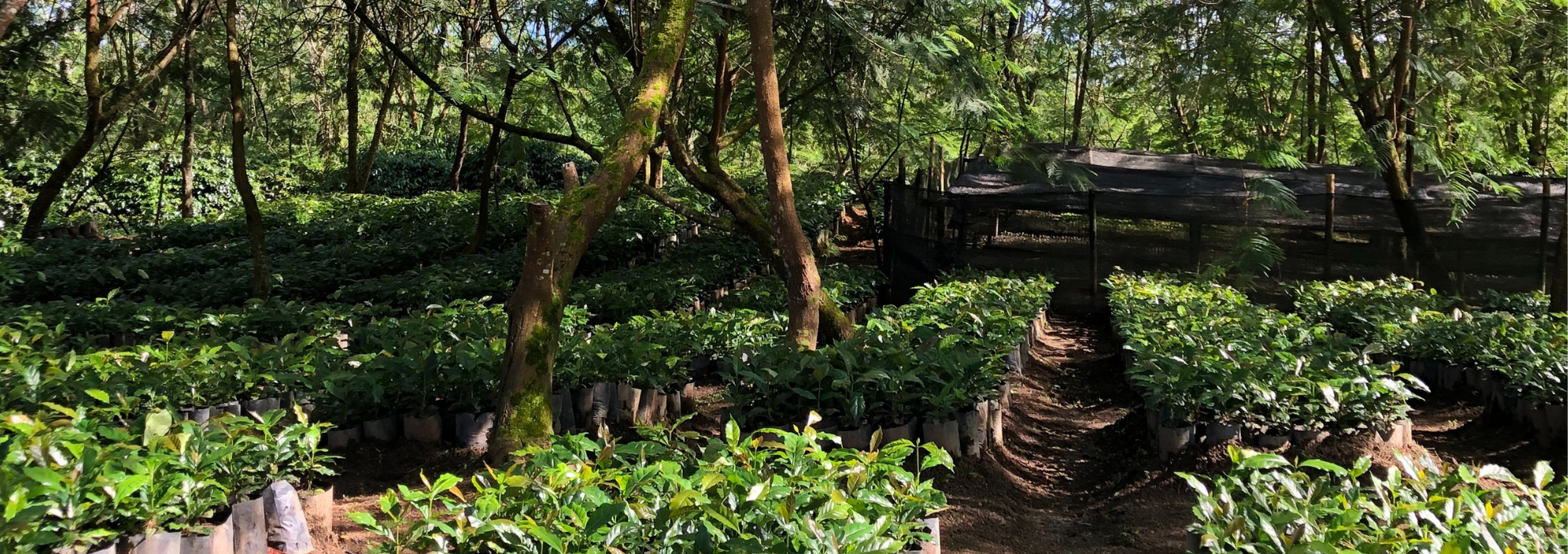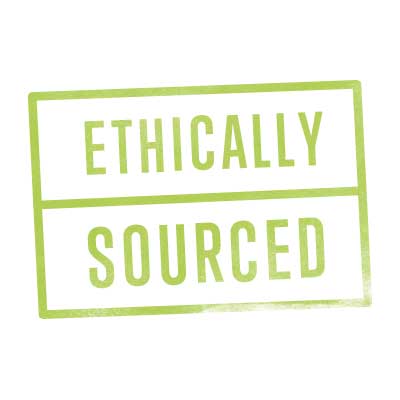Organic Coffee FAQs

WELCOME TO THE WORLD OF ORGANIC COFFEE
Organic certification is a big talking point in coffee. It's something we're asked about time and time again. Is our coffee organic? What is organic coffee anyway? What are the organic farming methods used? We have one proudly certified coffee, Organic Espresso. Still, when it comes to the rest of our uncertified coffees, you'll find they share many of the aspects of our certified organic version.
In this Organic Coffee FAQs we explain more about organic coffee growing techniques in the speciality coffee market.
WHAT IS ORGANIC COFFEE?
According to The Soil Association, organic is
"a system of farming and food production. Organic farmers aim to produce high-quality food, using methods that benefit our whole food system, from people to planet, plant health to animal welfare.
In practice this means the following things for speciality coffee farming.
Support biodiversity and wildlife
Coffee thrives when grown in the shade, so planting in forests and promoting biodiversity is a big win for coffee farmers looking to produce top-quality coffee. Many of the farms we work with are treated as nature reserves and so they are home to rare species of plant and endangered animals.
Help combat climate change
Coffee farmers feel the impact of climate change acutely. They see it in inconsistent rainfalls, in new diseases which thrive in a warmer climate and threaten to decimate entire harvests. They tell us that this is their number one concern. You can see this in the infrastructure and design of the farms. Solar panels, recycling of water, collection of rainwater – all commonplace in the farms we work with.
Our responsibility is to ensure the lowest possible impact on transport (we transport by ship and never air). Restoring second-hand roasters instead of buying new, recycling coffee waste into bio-fuels and green energy tariffs are just some of the small steps we take.
Reduced exposure to pesticides
Arabica Coffee is a picky plant! It likes high altitudes and very particular growing conditions. Most of the farms we work with are up volcanoes and mountains. In such rural and challenging growing conditions, organic methods are not just environmentally better but also more efficient. Leaf litter left on the ground to protect new plants; farms are making their own compost from coffee waste, developing disease-resistant varietals instead of pesticides—all common practice in the farms we buy coffee from.
Food as it should be, and food you can trust
We spend years developing long term, sustainable relationships with farmers. These are partnerships with people we know and trust. Meet our coffee growers here.
WHAT IS ORGANIC CERTIFIED COFFEE?
Organic certification is a tricky subject. In order to claim they are organic and to use an organic accreditation, such as The Soil Association, farms need to go through a process of organic certification to show they meet organic criteria and standards. Organic is synonymous with better quality produce. However, in the coffee industry, this doesn't really show the whole picture.
Speciality coffee is bought on a quality-based premium. Extract pays a higher rate for exceptionally high-quality coffee.
Farmers cannot produce coffee of this quality without the utmost respect for the environment. Coffee plants thrive in shade, so farmers protect natural forests and bio-diversity to provide shade for their coffee plants.
The growing locations (mountains and volcanoes) are hard to reach, so farmers recycle coffee waste and leaf litter as compost rather than transport expensive fertilisers to high altitudes. Farmers need to attract the most skilled workers to their farms, so they take steps to pay attractive wages and ensure the welfare of their workforce.
In the case of speciality coffee, this work takes place often without without organic certification.
IS EXTRACT COFFEE CERTIFIED ORGANIC?
We have one proudly certified coffee, Organic Espresso. Our roastery is certified organic and we are audited by The Soil Association. Some of the coffees we buy are organic certified, but most of them aren't.
WHY DON'T ALL COFFEE FARMERS GET ORGANIC CERTIFICATION?
The costs and paperwork involved in organic certification are significant. Coffee which is exceptionally high quality is sold at a higher premium anyway, so certification won't necessarily mean more earnings for that grower.
Some of the farms we work with are very small, and the expense of organic certification just isn't a possibility for them. Many of the growers we buy from farm organically out of necessity, they just simply don't have the funds to certify themselves.
Some of the coffees we buy carry official certification, namely our Organic Espresso, however, it is not a pre-requisite of our buying policy.
How does organic certification benefit coffee farmers?
Once certified, farmers can sell their coffee at a higher rate. This should cover the direct and indirect costs of becoming certified, which seems a simple enough trade-off. As mentioned above, high quality coffee commands a premium regardless of certification, so the organic certificate itself does not necessarily increase the earnings for the farm and in some cases the costs are prohibitive.
Is organic coffee better quality than uncertified coffee?
All of the coffee we buy is speciality-grade coffee. Speciality coffee is top grade, scoring 84 points or higher when graded. The price of speciality coffee is based on the quality it scores at grading. We pay more for better quality and this price may be above and beyond an organic premium.
WHAT IS FAIRTRADE COFFEE? IS THAT THE SAME AS ORGANIC?
The Fairtrade model exists to ensure a minimum price guarantee to producers for their coffee. When it was first introduced the model pulled a lot of farmers out of poverty.
However, for coffee growers producing coffee of exceptional quality, it is possible to make much better returns for their product than selling through Fairtrade channels.
We pay quality-based premiums for speciality coffee which is of the highest quality. This is much higher than the fairtrade baseline. We look to showcase the provenance of each farm we buy from, which is why so many of our coffees are Single Origins, which means they come from a single coffee farm.
ALL THAT READING LEFT YOU THIRSTY?
Try one of our ethically sourced coffees. From our fully certified Organic espresso, to the Rainforest Alliance approved Cast Iron, to our house staples, Rocket and Original - all sourced from farmers doing right by people and planet.

